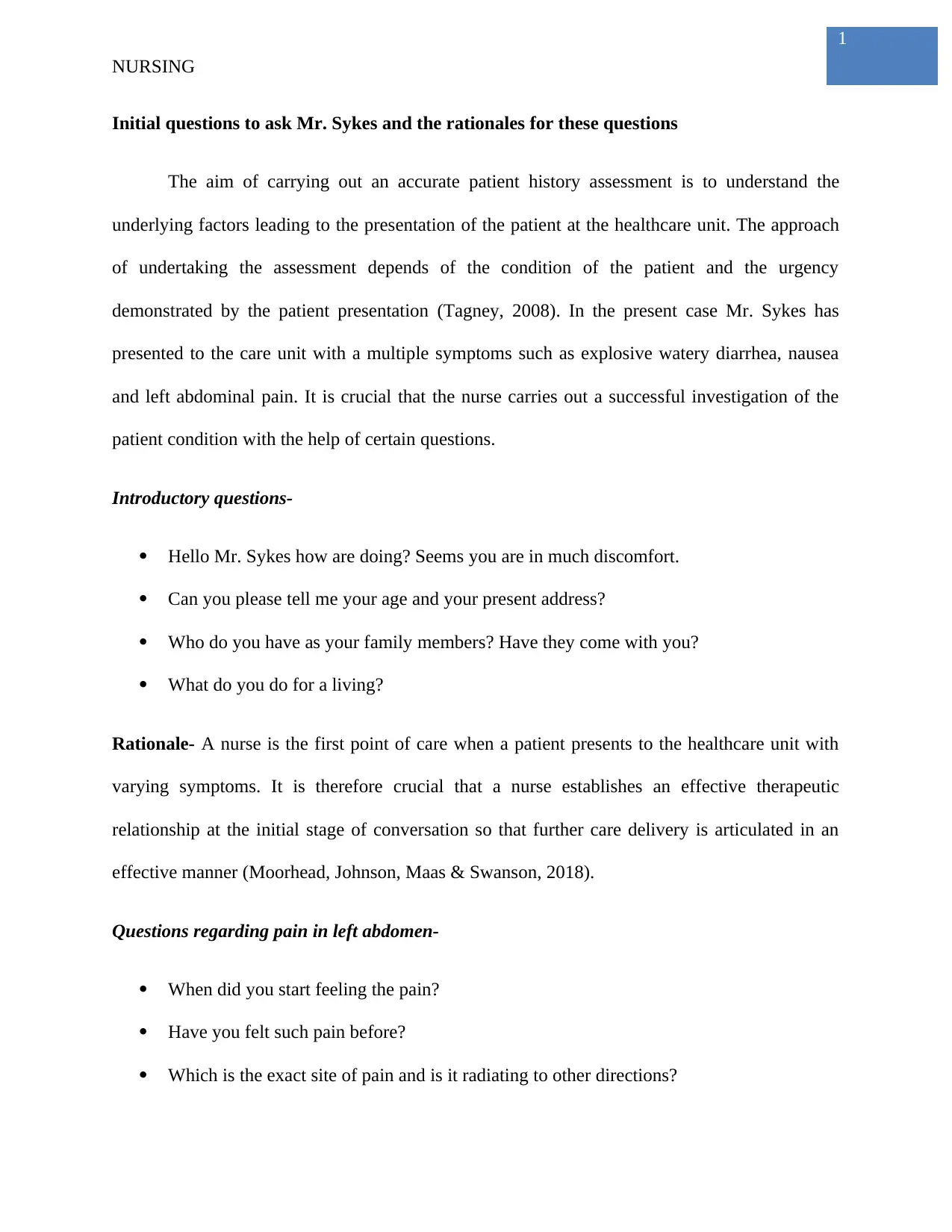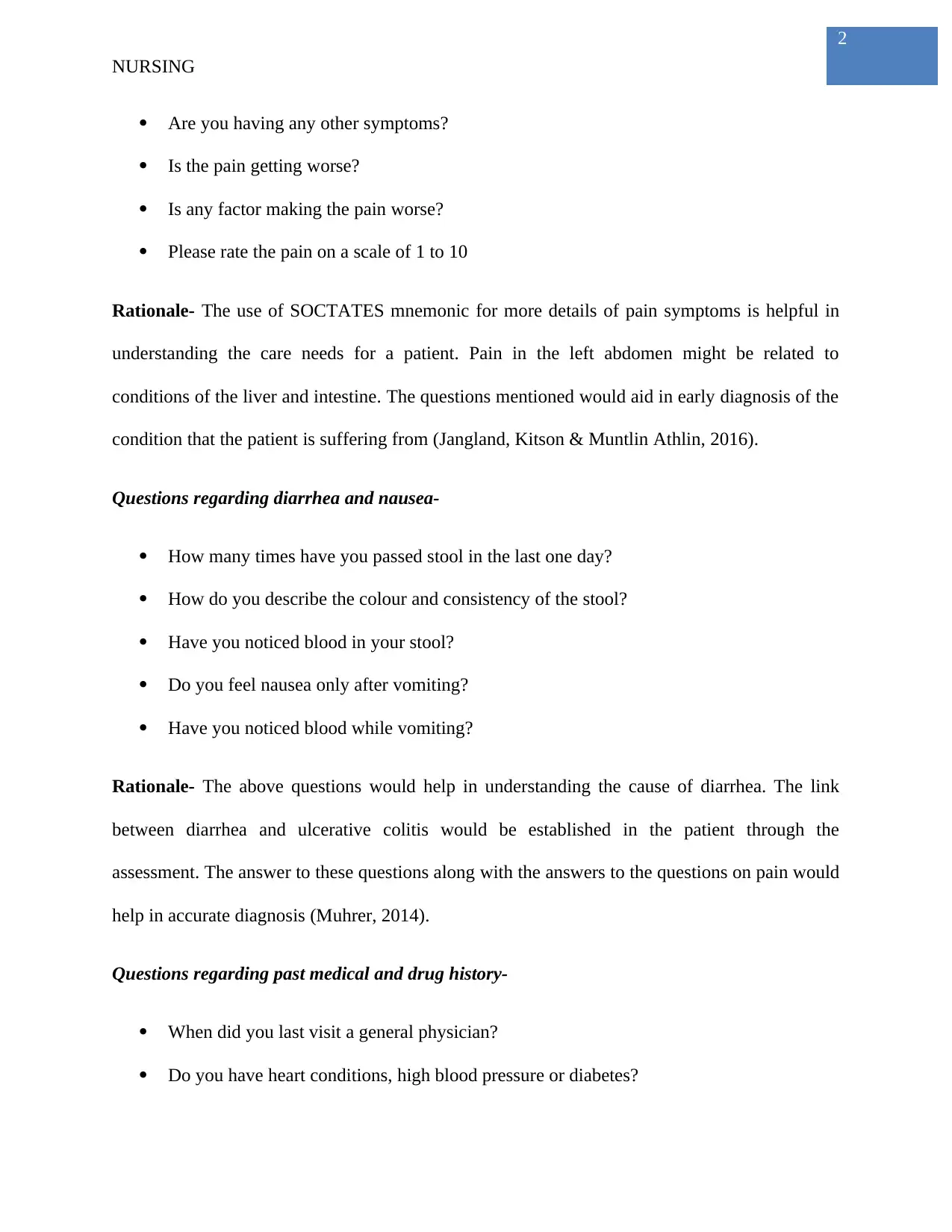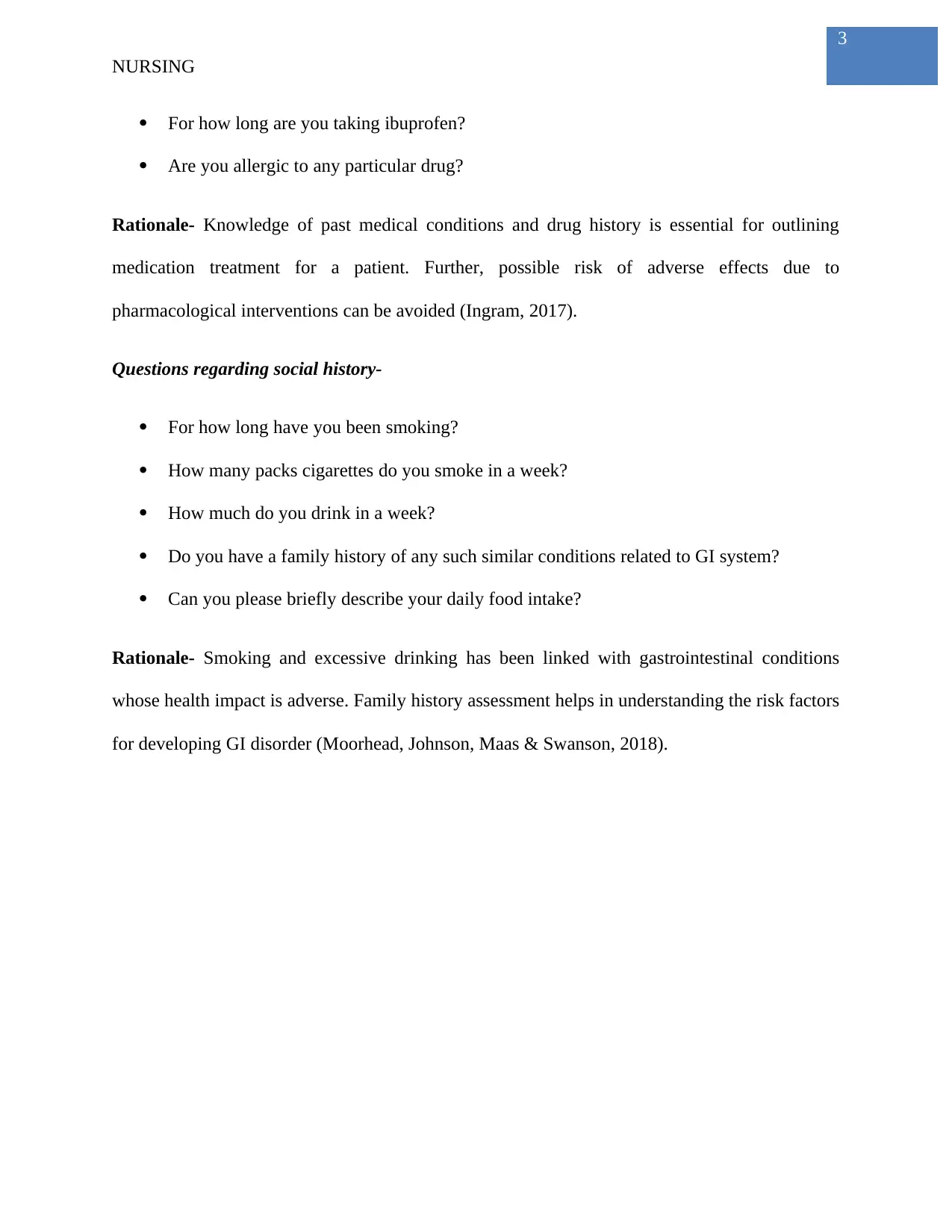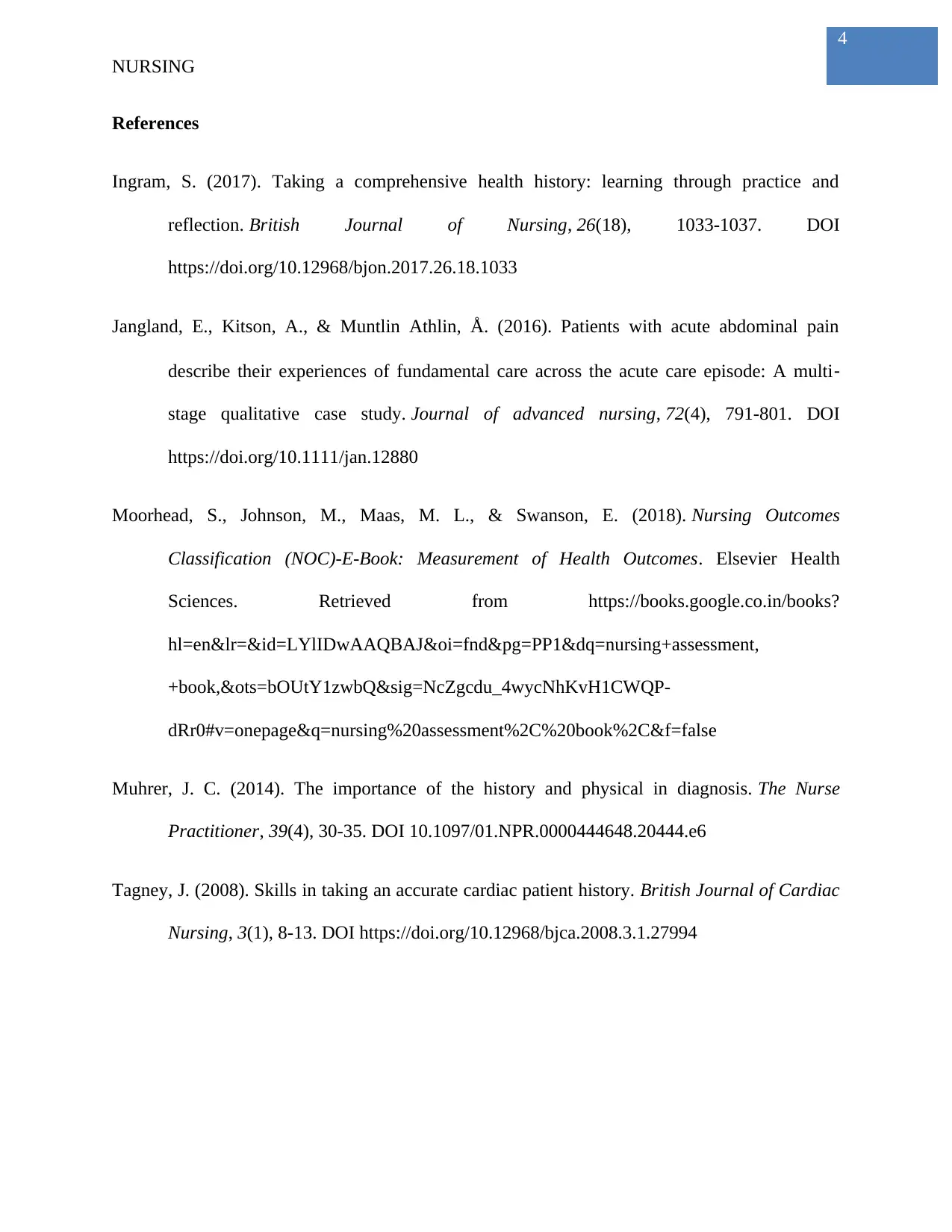Initial Questions to Ask Mr. Sykes for Accurate Patient History Assessment
VerifiedAdded on 2023/06/07
|5
|934
|396
AI Summary
The article discusses the initial questions to ask Mr. Sykes for an accurate patient history assessment. It explains the rationale behind each question and its importance. The questions are categorized based on the symptoms presented by the patient.
Contribute Materials
Your contribution can guide someone’s learning journey. Share your
documents today.
1 out of 5











![[object Object]](/_next/static/media/star-bottom.7253800d.svg)